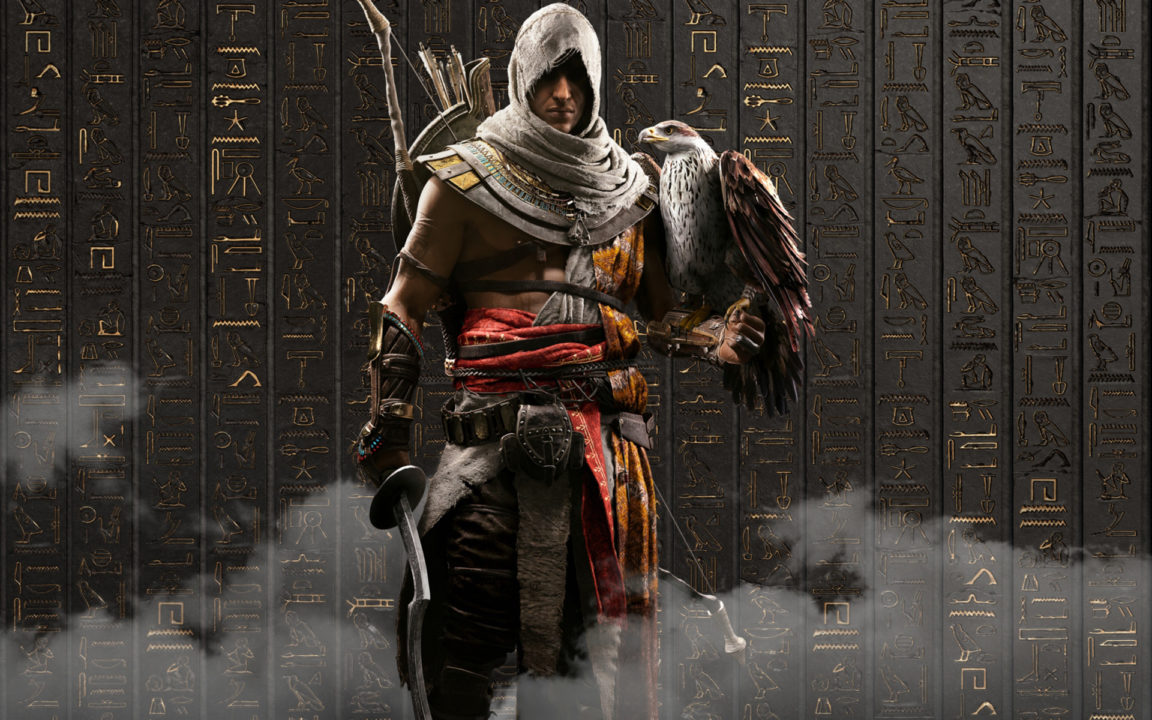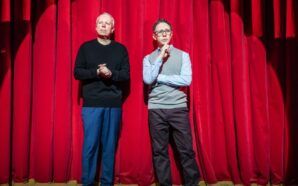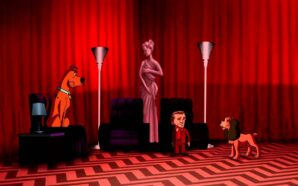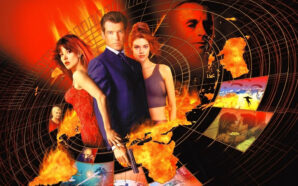What follows is the continuation and conclusion of my in-depth look at the first decade of the video game series Assassin’s Creed from Black Flag’s bold new direction to the recently released Assassin’s Creed: Origins. If you’ve not read the first part which charts the rise of the franchise from the original game up until Assassin’s Creed 3 then you can read it here. Now let’s look at the second half of the franchise which was far more tumultuous than the first.
Assassin’s Creed IV: Black Flag (2013)
Out of all of the Assassin’s Creed games, Black Flag is probably the most fun. Building on the naval combat that was introduced in the previous instalment, Black Flag offers the huge open world of the Caribbean Sea to plunder and pillage on your way to becoming a feared pirate. Oh, and an Assassin. The actual Assassin stuff though isn’t the focus and, while the game has all the familiar elements of Assassin’s Creed whether it is gameplay or story points and lore, it doesn’t exactly feel like an Assassin’s Creed. That’s not necessarily a problem though because it’s just so much fun to play. While each of the other previous games felt like sequels in a series, Black Flag feels more standalone despite tying into the mythology and this almost anthology like stance, for better or worse, will continue. Edward Kenway, father of AC3’s Haytham, is the protagonist this time around becoming one of the most likable characters in the series and is surrounded by a great supporting cast of allies but once again we get some weak villains.
My favourite mission from the game, and one of my favourite of the series, comes when Edward is marooned on a desert island with fellow pirate Charles Vane, voiced by Finchy from The Office, who has gone mad. It’s a fun and unique mission in a series which often gets too bogged down in eavesdropping quests. Multiplayer returns for the last time which is a shame because it is one of the franchise’s most unique features; I hope it returns someday. In terms of the modern day storyline, Black Flag begins a new and more convoluted chapter as we pick up after Desmond’s death as a faceless, voiceless employee of Abstergo Entertainment sifting through Desmond’s remaining genetic memories. The missions and locations are a lot of fun and it is interesting to be placed on the other side of the Assassin/Templar conflict. It’s hard to judge the overall present-day storyline however because so much of what is introduced in Black Flag, including Juno and the Sages with an interesting case of heterochromia, has yet to have a payoff. While I won’t be discussing it at length I do also really like Freedom Cry, the standalone DLC of Black Flag, which focuses on Adewale and deals with some interesting subject matter including slavery.
Assassin’s Creed Rogue (2014)
Rogue is the black sheep of the franchise. Releasing at the same time as Unity, Rogue was limited to the previous console generation of the PlayStation 3 and Xbox 360 and offered an experience similar to that of Black Flag. Once again naval combat was in the forefront as we followed new character Shay McCormack in a tale set between Black Flag and Assassin’s Creed 3 in the oceans and rivers of North America. In my eyes Rogue’s biggest flaw is also its strength: nothing is new. We’ve done it all before. Plunder ships, upgrade ours and assault military bases in between hunting down our targets. It was still fun just somewhat uninspired. The story is where the ‘nothing is new’ observation becomes a strength however because we revisit places and characters we are familiar with and tell a story that ties them all together with the game being both sequel to Black Flag and prequel to AC3. Adewale and Haytham meet and we get backstory on Achilles from AC3, all of which is cool for a fan of the previous games but the forgettable Shay never truly shines.
Rogue expands what AC3 did in its prologue and blurs the lines between hero and villain and the philosophies of the Assassins and Templars. Shay begins as an Assassin but soon, after a shocking event, switches sides and hunts down his old comrades and this greying of the moral spectrum is very well done. The problem is that everything in Rogue is very small and slight; it’s clear that the developers were using existing assets in a rushed time frame because it shows. The gameplay has no new features, other than a big silly gun, and is tired by this point and the story is frustratingly short at just 6 memory sequences. The modern day sequences return to Abstergo Entertainment and the outcome still confuses me to this day and is better left forgotten.
Assassin’s Creed Unity (2014)
Oh, Unity! What a disappointment. One big way to see how much I like an Assassin’s Creed game is how many times I have replayed it. I’ve played AC1 several times through, each of the Ezio games around 10 times and a couple of times for AC3 and Black Flag. I haven’t picked up Unity since putting it down after the end of my first playthrough of the story. I haven’t even gone back just to pick up the collectables or get all the trophies. It’s not all bad: the gameplay is much more fluid, it looks beautiful and the more open mission design is a welcome addition. The problems are pretty much everything else. 18th century Paris is a boring location; every single street looks the same and after the sprawl of the Caribbean Sea filled with islands and small cities it seems like a step backwards. The story focuses on Arno Dorian, an Assassin raised by a Templar and who is also in love with one: Elise. It’s an interesting concept but the plot is uninspired and follows the same beats of betrayal and backstabbing (literally) as games that have come before it. Elise is the far more interesting character but we are stuck with Arno whose most defining feature is his cool outfit. Meeting characters such as Napoleon is a brief interesting diversion but then the game limpers to the worst ending in the franchise which the word lacklustre doesn’t do justice. The modern day component is infinitesimal as we ourselves are the protagonists and are given the mission of playing through Arno’s memories for an Assassin we get occasional webcam footage of. The wider mythology draws to a standstill as we track down another Piece of Eden and a Sage but learn nothing new from either. Unity is the franchise treading water with nothing new to add which is no doubt a symptom of annualisation (in fact two games were released this year) and is my least favourite game of the series.
Assassin’s Creed Syndicate (2015)
I feel that if Unity never happened then I would look back on Syndicate in a much better light. It is by far the better game of the two but releasing just 1 year later and being set in a similar time period and in a similar, one large city environment didn’t help Syndicate stand out. The characters of Jacob and Evie are interesting, as is their mobile base on a train, but the plot is forgettable. The targets all blend into one another just like the almost identical city districts which made free-running a chore, despite the introduction of an advanced hidden grapnel blade. The mission design for the assassination missions are a standout, improving what came before in Unity and some locations such as the Houses of Parliament and Buckingham Palace are well realised. The horse and carriage chases are also fun but the game relied on them too much. To be honest I’m having trouble writing about Syndicate; the game was fine and fun enough to complete but most of it was entirely forgettable and the present-day sequences, like Unity, are a joke. They either have to be significant or be cast from the franchise all together. Short cutscenes and audio logs just piss off old fans and uninterest new fans.
Assassin’s Creed Movie (2016)
An Assassin’s Creed movie has a massive amount of potential to be good. Over the last two articles we’ve explored how the games have balanced incredible action, character drama and a sprawling mythology and a film could have distilled that into a two hour experience. Sadly, it didn’t. The cast was great, from Michael Fassbender to Marion Cotillard to Jeremy Irons (playing a character we see very briefly at the end of the first Assassin’s Creed game), the cinematography was on point and I remain a big fan of the director Justin Kurzel who was responsible for the great 2015 Macbeth film. The problems stem from the script. The creeds of both the Assassins and Templars were under defined, the mythology was hinted at but never expanded enough to appease fans or explain enough to be grasped by general audiences and the main problem was that too much of it was set in the present day. Unlike some I enjoy the modern-day components of the game but the focus should have definitely been on the time spent in 15th century Spain. As we had it, all of the character drama was set in the present and the jumps back in time were purely to fill an action quota rather than add to the storytelling. And then, at the two hour mark, it just fizzles out and ends. No big set piece or dramatic conclusion just disappointment. Origins confirms the movie to be set in the same universe as the games so it’ll be interesting if the characters from the movie cross over into the games considering a sequel is unlikely. It’s not all bad though: Jed Kurzel’s score is great.
Assassin’s Creed Origins (2017)
So finally, we get to Origins. The two-year break between games is clear from the get go and Origins is just massive. I need to state right now that I have yet to complete all of the story quests despite putting over 60 hours into the game because I’m still addicted to the gameplay and the world. Because I have yet to complete the story my thoughts on that issue may be a little stunted but I’m planning to write an entire article about Origins in the near future. It is by far the best-looking AC game from oasis to desert and finally my upgrade to 4K with the PS4 Pro has paid off. Going backwards in time was a great decision at this stage in the franchise, allowing new gamers to have a good jumping off point and going back to the prominence of swords and other melee weapons instead of trying to figure out which hidden blade gimmick to come up with next. The story is okay and I feel like my opinions on it will swing depending on how it concludes but I do like Bayek, and present-day Layla, a lot but Origins is a game all about gameplay and the open world. The game rewards exploration and finding and completing locations like Far Cry-esque Military Camps is very satisfying and good for loot. The loot system is a welcome addition but I hope it gets expanded on in the future, at times it feels too simple. The same can be said for the combat which has been reworked and improved but still feels too simplistic at times, especially compared to how the developers were talking about it in the run up to release. Origins reminds me of Black Flag quite a bit, I have some problems but most of them are washed away with just how fun the experience is and I have to admit I’m a little bit addicted at the moment. Origins is also a prime example for why I feel the prices of video games should rise because I paid £45 for the game but for the fun it has given me and the amount of time I’ve spent playing I would have happily paid a lot more for it.
Origins has proved the sustainability of Assassin’s Creed like none other. After a decade the franchise is still going strong after a reinvention large enough to keep the series dominant but without wiping away the magic that first appeared 10 years ago with the original game. The sequels first improved upon the original but then steadily the quality dwindled until Origins became a necessity. Overall the decade of Assassin’s Creed has been strong and now that a new chapter for the franchise has begun I look forward to the second decade of the franchise that deserves its place in the upper echelon of the medium. Have any thoughts on 10 years of Assassin’s Creed? What’s your favourite game of the series? Let me know in the comments and geek out with me about TV, movies and videogames on Twitter @kylebrrtt.








